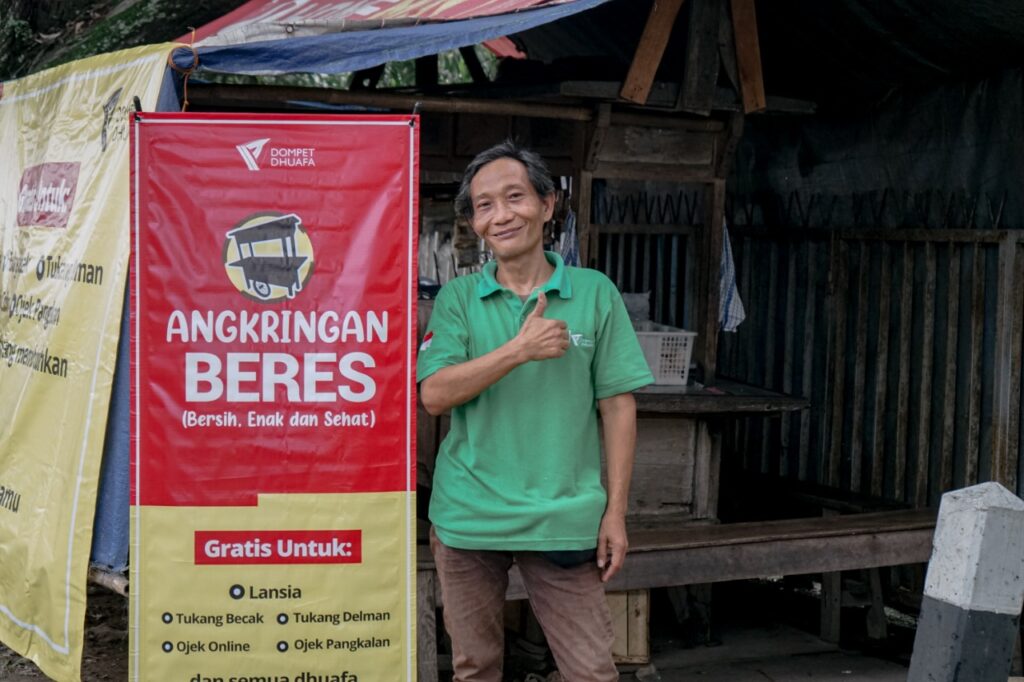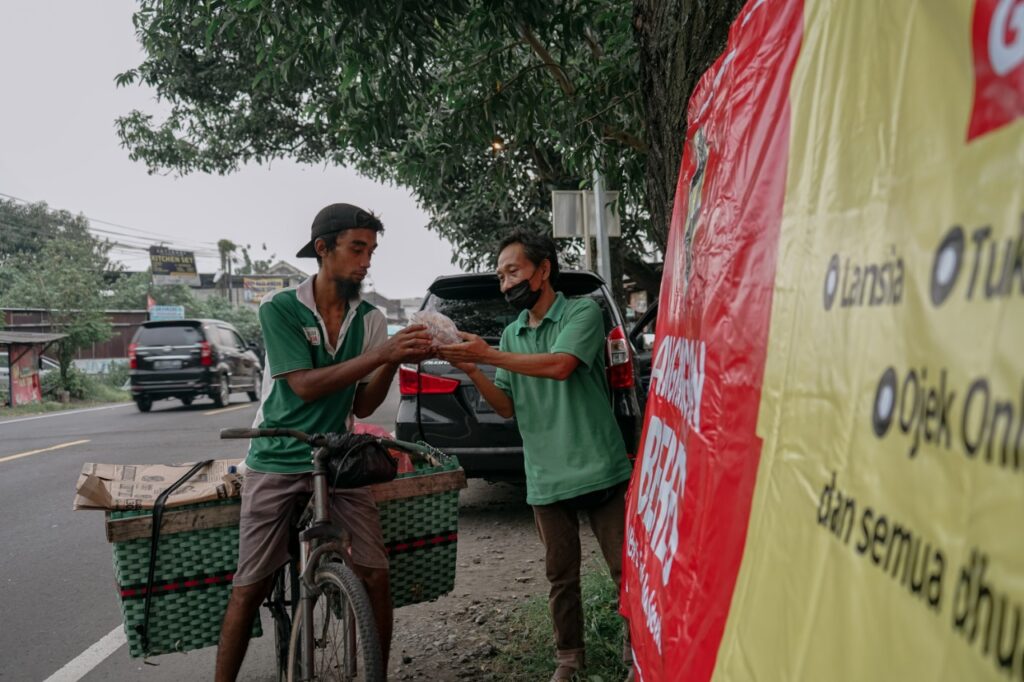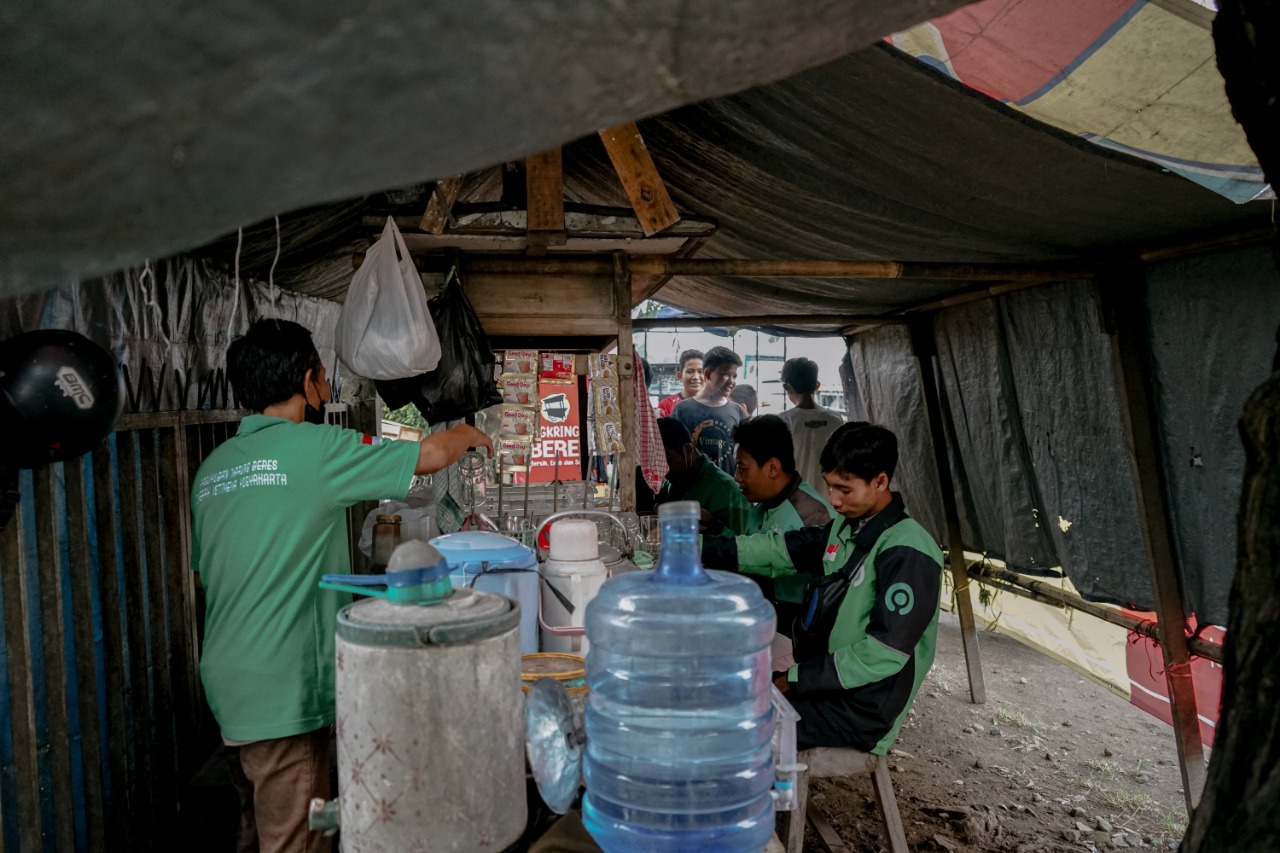As a humanitarian, social institution that serves the welfare of the people, Dompet Dhuafa stands on five pillars of empowerment programs. The program’s five pillars include health, education, economy, social, da’wah and culture. The economic program is one of the programs that have succeeded in elevating the status of the groups that live economically and socially (duafa) to become an empowered community and able to support themselves and their families. The Beres Stall program is one of Dompet Dhuafa’s successful economic programs, according to the results of a study entitled “Beres Stall as Social Capital to Increase People’s Economic Productivity.”
The Beres Stall is run by Dompet Dhuafa Yogyakarta Branch (DD Jogja). Since its inception, Dompet Dhuafa has been committed to managing zakat funds into something productive and improving the ability of the poor, not just consumptive. This commitment is manifested in the concept of productive zakat, which empowers the poor.
Baca juga: Launching Sentra Ternak Dompet Dhuafa, One Step Forward Zakat Produktif
In the early stages, productive zakat must be able to educate people who receive zakat (mustahik) until they are ready to change and change their conditions. Unlike consumptive zakat, productive zakat accompanied by empowerment will produce long-term results, namely community independence, so they no longer depend on donors, amils, or zakat institutions.
Empowerment Goals
According to Social Welfare expert Rukminto Adi, the purpose of empowerment in the context of development may vary, depending on the development field being worked on. But substantially, the purpose of empowerment is to empower underprivileged or powerless people empowered. Thus, through empowerment, there is a change in conditions for the better.
Based on research development in the field, the stages of community empowerment are broken down into three. First, awareness and behaviour formation towards conscious and caring behaviour, thus requiring self-capacity building. Second, the transformation of abilities in the form of skills and insights at the stages of ongoing programs in the community. They are third, increasing intellectual ability or knowledge, so with this increase will be formed initiatives and innovations to usher in independence.

Dompet Dhuafa Empowerment Concept
Empowerment for Dompet Dhuafa means a process in which communities, especially those who do not have access to development, are encouraged to increase independence in developing their livelihoods. Empowerment for Dompet Dhuafa departs from the existing social reality. First, helpless people are made aware of their condition. The community is invited to analyze its shortcomings and the potentials that allow it to be developed. The feeling of shared destiny between community members will strengthen the brotherhood bond between individuals.
Baca juga: Pemberdayaan Zakat Mengubah Hidup Mereka
The following process imparts knowledge and skills after self-awareness and a sense of community. This process is the embodiment of opening access to resources. In this case, the resource in question is science. Through the Beres food stall Program, Dompet Dhuafa seeks to connect beneficiaries with competent educational institutions in creating healthy, clean, and good environmental sanitation food.
In addition, Dompet Dhuafa also seeks to open access to governments with the competence to legalize their businesses. Furthermore, the last access is with financial resources. Dompet Dhuafa’s partner introduced the traders, Islamic social financial institutions (Baitul Maal wa Tamwil,BMT).

Research Results of Beres Food Stall DD Program in Yogya
The results of research on community empowerment through the Warung Beres Program (clean, tasty, and healthy) in Gunungkidul Regency show that conceptually Beres food stall is an effort to empower the economy for street vendors, especially temporary food stall (angkringan) traders, through an approach to applying the principles of clean healthy living. The implementation of the Warung Beres Program is carried out through several stages of continuous activities, including:
- Angkringan business training.
- Business equipment capital assistance.
- Forming the Beres temporary food stall in Gunungkidul Traders Association.
The Warung Beres program has produced results and impacts in improving the community’s economy, especially for low-income people actively participating in this activity. These results are shown in five indicators, including:
- Built business attitudes and behaviours that are oriented towards cleanliness, good food quality, and healthy
- Improvement of business equipment
- Joined the temporary food stall (Angkringan) Traders Association
- Get convenience in borrowing business capital
- Increased revenue
Thus, it can be concluded that productive zakat management accompanied by empowerment can be one of the solutions for this country to reduce social inequality and poverty.



